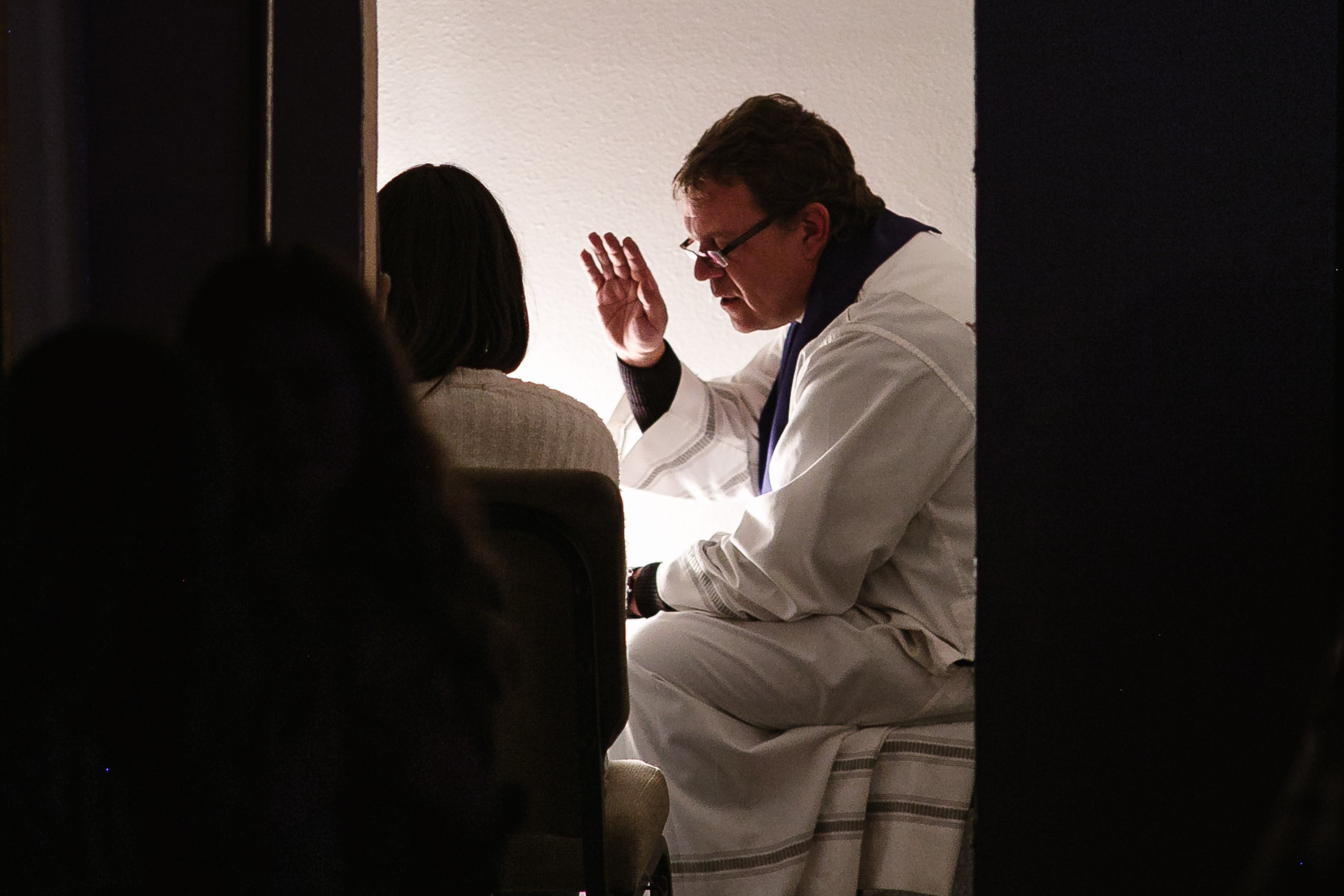Anyone who lives in a household probably understands the difference between “straightening up” the house and real cleaning. Straightening up is an attempt to organize a cluttered mess, while cleaning is much more thorough and intense, usually involving cleaning supplies, soaps and polishes. I have heard that this work is quite difficult (kidding!).
This idea of “deep cleaning” is related to a message that I believe flows from this Sunday’s Gospel: our need to “prepare the way of the Lord,” by going to confession.
To “prepare the way of the Lord,” and to “make straight his paths,” was prophesied in the book of Isaiah and became the message of John the Baptist to the people of Israel. At a time when Israel longed for a Savior, John preached a baptism of repentance for the forgiveness of sins. In other words, John helped Israel to straighten itself up, preparing the way for the coming of Jesus, Who was coming in to do the real cleaning: suffering, dying, and rising again to destroy the sin that had infected us and to save us from eternal death.
Now, to prepare the way for Jesus in our hearts means that our hearts must be cleansed of anything that would get in Jesus’ way — not only anything that would block his path, but anything that would even make Him stub His toe, so to speak.
Now, to prepare the way for Jesus in our hearts means that our hearts must be cleansed of anything that would get in Jesus’ way — not only anything that would block his path, but anything that would even make Him stub His toe, so to speak.
We could say that the sacrament of reconciliation involves the two steps we have been talking about: straightening up and cleaning. Confession is a sacrament — which means that it is an act of worshiping God and an experience of His power. In other words, God is going to do the real cleaning. But we prepare for this sacrament by straightening up, which is also by God’s grace but involves our active cooperation.
In prayer, we examine our consciences, looking deep into that part of ourselves where God speaks to us and helps us to know right from wrong. And as we examine our lives, we “straighten up” — “picking up” the things we have done and failed to do, holding them up and considering them in the light of Christ. And we sort them out according to the kinds of sins they are, how serious they are, and how many times we have committed them, if they fall into the category of what we call “mortal sins.”
Now, when I was a boy and used to straighten up in my room, I was sometimes tempted to take a shortcut by kicking or shoving things under the bed so that no one could see them. If I did that, my room might appear to be clean, but would not really be clean. We cannot do that when we examine our consciences. God knows everything and sees everything — even “under our beds.” And besides, the teaching of the Church is that we need to confess all of the mortal sins we can remember when we go to confession, if we want any of them to be forgiven. But when we confess all these sins, we can be sure that every sin of ours, even a sin we might have honestly forgotten, is forgiven. We just mention a forgotten sin at our next confession.
After we have done this “straightening up,” and we have our sins sorted out and are prepared to confess them, we come with sorrow and a resolve to turn away from our sins when we approach a priest for confession. This is where God, through the ministry of the priest, is going to act powerfully, doing the real cleaning of our souls by showering us with love, mercy and forgiveness. When we confess properly, we allow God to pull all of the obstacles out of us, cleanse us, heal us, and make us holy, so that the Lord will once again have a straight path into our hearts and souls.
Finally, John the Baptist calls us to “prepare the way” not only to Bethlehem but to Calvary, and to the Lord’s altar, where Jesus’ dying and rising are made present to us at every Mass. Confession is certainly a wonderful way to prepare for Christmas during this Advent season, and we have several opportunities for the sacrament throughout the Archdiocese of Detroit during the coming days.
But there is also a connection between the sacrament of reconciliation and the Eucharist. Our second graders are going through first reconciliation in order to prepare for their first Holy Communion, and their journey gives us a good example.
Certainly, we need to confess mortal sins before receiving Jesus in Holy Communion, but it is also a good idea to confess our venial or smaller sins regularly, as part of doing everything possible to create a clear and straight path for Jesus to enter our hearts and souls. So may all of us, during this Advent and always, prepare the way of the Lord by receiving the sacrament of reconciliation, knowing how good it is to have God dwelling within us.
For more information about how to make a good confession, please see this article.
Fr. Charles Fox is a priest of the Archdiocese of Detroit currently assigned to the theology faculty of Sacred Heart Major Seminary. He is also a weekend associate pastor at St. Therese of Lisieux Parish in Shelby Township and chaplain and a board member of St. Paul Evangelization Institute, headquartered in Warren.










